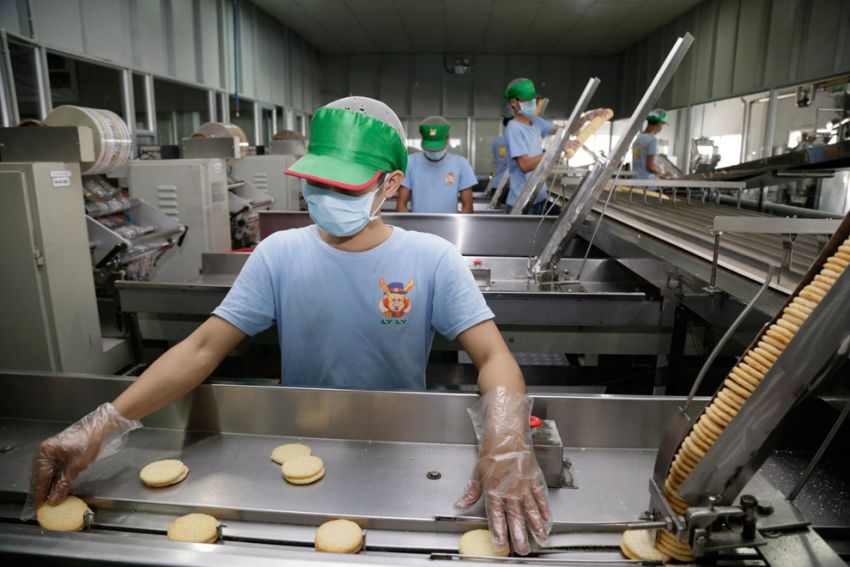
Workers are packing chips at LyLy Food Industry. Hong Menea
South Korean experts are teaming up with specialists at the Cambodian Ministry of Industry, Science, Technology and Innovation to study craft development techniques for the Kingdom’s cottage industries and small- and medium-sized enterprises (SME).
A total of 10 businesses based in the capital and the provinces of Siem Reap and Battambang have been selected as part of the initiative, which aspires to increase productivity and improve quality and other relevant standards for exports.
Hort Pheng, the director-general of the ministry’s General Department of SMEs and Handicrafts, told The Post on December 7, that the ministry has signed a memorandum of understanding (MoU) with the South Korean team to develop SMEs and equip them with the technology to produce quality agricultural products and processed foods for export.
The technical study will set out to enhance overall product quality, improve access to modern technologies, and ramp up production in accordance with international technical standards, he said.
He added that the Korean team would manage work to ensure the initiative remains productive.
“The study may take a long time, figuring things out step by step so that our SMEs can produce in accordance with national and international standards, with the primary goal of exporting. If our products meet the international quality requirements, we’ll be able to export,” he said.
Pheng said Minister of Industry, Science, Technology and Innovation Cham Prasidh would soon lead a delegation of ministry officials to South Korea to sign another MoU to set up a food testing and research centre.
The establishment would help bring Cambodian products up to quality and other pertinent standards, making them more competitive and fit for export markets, he said.
Although the ministry had looked at a lot of companies for the study, the 10 that were selected have shown a compelling willingness to adopt technologies and develop themselves into “model enterprises”, he said, adding that all of them are food processing businesses that have exhibited their wares in South Korea.
Federation of Associations for Small and Medium Enterprises of Cambodia (Fasmec) president Te Taingpor expressed support for the study, saying it would keep smaller Cambodian enterprises up to date and ensure quality.
He said the Korean-backed study would help and encourage SMEs in the provinces to unleash their potential, as well as contribute significantly to the implementation of the 2015-2025 industrial policy.
“We need to further scale up processing, noting that our country is an agricultural one, and as stipulated in the policy, we do not want to merely sell raw materials. We have a lot of agricultural products, such as cashew nuts, we need such techniques to produce and process for export,” Taingpor said.
He underlined that a large number of cottage industries and SMEs in the Kingdom do not possess processing or packaging techniques that meet recognised quality and other key standards.
This means that Cambodia must export raw materials for other countries to process and pack, and then resell and distribute in the Kingdom, he said.




















